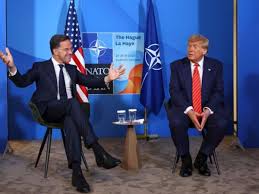
Introduction
The NATO Summit held in 2023 has been a pivotal event for the alliance, emphasizing the ongoing commitment of member countries to collective defense and international security.
Importance of the NATO Summit
As global tensions continue to rise, the NATO Summit serves as a crucial platform for member states to discuss defense strategies, enhance military cooperation, and address emerging threats. This year, the summit took place in Vilnius, Lithuania, gathering leaders from 31 member countries, underscoring NATO’s unity and readiness.
Key Highlights from the Summit
One of the primary focuses of the summit was NATO’s response to the ongoing conflict in Ukraine. Leaders reiterated their support for Ukraine, providing additional military aid and committing to expedite the country’s path towards future NATO membership. U.S. President Joe Biden emphasized the necessity of strengthening deterrence against any further aggression from Russia, stating that NATO must be prepared for a long-term commitment.
Additionally, the summit addressed the elevated concerns surrounding cyber threats and the importance of adapting NATO’s strategic approach to include comprehensive cyber defense strategies. NATO Secretary-General Jens Stoltenberg highlighted the need for member states to collaborate closely on cybersecurity initiatives.
Expanded Strategic Goals
Moreover, the summit saw discussions on expanding NATO’s presence in Eastern Europe, with plans to increase troop deployments in member nations bordering Russia. This move aims to bolster security in the region and reassure eastern allies of NATO’s commitment to collective defense.
Conclusion and Future Implications
The outcomes from the NATO Summit 2023 signify a commitment to a united front in the face of unprecedented global challenges. As the alliance prepares for potential future conflict engagement, the decisions made in Vilnius will likely shape NATO’s strategic direction in the coming years. For citizens of NATO member countries, the summit’s implications extend to national security policies and defense budgets, influencing how countries prioritize their military readiness amid escalating global tensions.



